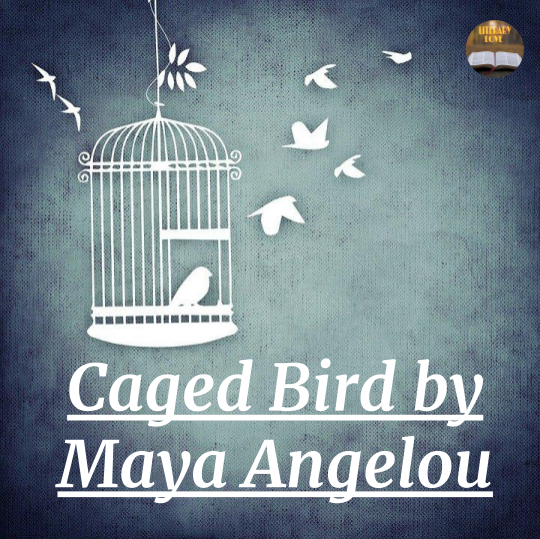Mother to Son by Langston Hughes
Well, son, I’ll tell you:
Life for me ain’t been no crystal stair.
It’s had tacks in it,
And splinters,
And boards torn up,
And places with no carpet on the floor—
Bare.
But all the time
I’se been a-climbin’ on,
And reachin’ landin’s,
And turnin’ corners,
And sometimes goin’ in the dark
Where there ain’t been no light.
So boy, don’t you turn back.
Don’t you set down on the steps
’Cause you finds it’s kinder hard.
Don’t you fall now—
For I’se still goin’, honey,
I’se still climbin’,
And life for me ain’t been no crystal stair.
INTRODUCTION -
"Mother to Son" was a famous poetic work by the American poet Langston Hughes. It was initially published in the magazine, Crisis in December 1922 and was later included in Hughes' first book, The Weary Blues in 1926. The poem, though written from a black man's point of view of the hardships in life, can be easily related by people all over the globe. The poem is both emotional and inspirational as a woman tells her son about all the hardships and obstacles she faced in her life and how she never gave up. The journey of life is like a broken and worn-out staircase which you have to keep climbing until you reach your destination. It was a dramatic monologue of 20 lines written in one single stanza. It was written in free verse.
POET -
James Mercer Langston Hughes (February 1, 1901 – May 22, 1967) was an American poet, social activist, novelist, and playwright. He was one of the earliest innovators of Jazz poetry. His most famous works include Harlem, Dreams, The Negro Speaks of Rivers, Let America Be America Again, etc.
SUMMARY -
The poem starts with a mother's word of advice to her son on how to face the challenges in life. She does this by describing her life journey. She says that her life wasn't as smooth and beautiful as a crystal stair. Rather her life was similar to a shattered and worn-out staircase with splinters in it and torn-out boards. She means to say that her life-journey was quite rough where she faced many difficulties and hardships which are described here as splinters and broken boards. These broken stairs didn't even have a carpet which made walking on them even more difficult. The mother points to her son that her journey of life was not only filled with hardships but it was painful too and it felt difficult at times to keep going on.
But the mother reminds her son how she never stopped moving in this life's journey. She took different turns and went to new spots. The place and time changed and so did her problems. Old problems were left behind and new problems were faced but she kept going on and on. Next, she says that sometimes the problems in her life increased in such forms that there was just darkness in her way and no light of hope was visible. That was the time when this journey was most difficult for her but she strengthened herself and kept going on.
Now, she directly says her son to have a look at her life: how she never stopped or quitted and asks him to do the same. She asks him never to stop or sit on the broken stairs of life and not to give up on facing problems or turn his back. She asks him to keep moving on by giving him another big reason - because she is going on too. She hasn't stopped or sat down, so her son shouldn't be doing that either. The mother is climbing up those broken and old stairs of life and the son will have to follow her too. At last, the poet just reminds us that life is not a marble staircase, smooth and easy to climb. It is a broken wooden staircase full of splinters and painful to climb. But the journey doesn’t stop, it keeps going on.
THEMES -
- Experience and perseverance - In these lines, the poet warns the reader through the mother about the hardships of life but also advises us to be patient and never to give up on our dreams. We have to be full of hope and strength, believing that one day these pains will subside and life will become joyous but till then we have to keep moving.
END -
This poem is considered one of the greatest works ever written by Hughes. The poem pays attention to more than one factor - a mother-child relationship, hardships faced by black people, and the journey of life. Life can be difficult for us at most times and the feeling to stop and quit becomes quite powerful. At such times, we should look forward to our idols, our parents who are still battling life with a smile and follow in their footsteps.











1 Comments
Nice one
ReplyDelete